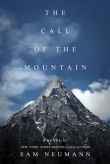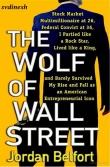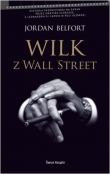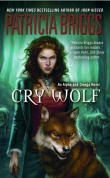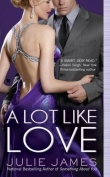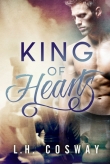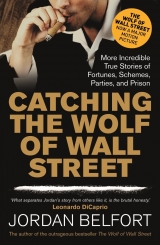
Текст книги "Catch the Wolf of Wall Street"
Автор книги: Jordan Belfort
Жанр:
Биографии и мемуары
сообщить о нарушении
Текущая страница: 5 (всего у книги 33 страниц)
“Why is that?” asked Magnum, taken aback.
How naive! I thought. Magnum was a fine lawyer, but he didn't think like a true criminal. I would just have to educate him. “Because the night I was arrested, I thought Coleman would come back with a search warrant. So I told Nadine to give the cash to her mother for safekeeping. But I can get it back anytime I want. You think I should?”
“Yes, you should. And if the subject of cash comes up again, you should offer that information proactively. Remember, as long as you're honest, you can't get into trouble.” He reached into his suit-jacket pocket and pulled out a single sheet of yellow legal paper that had been folded lengthwise, into thirds. Then he smiled and raised his eyebrows three times in rapid succession and placed the sheet of paper on the conference table. He slipped on a pair of reading glasses and unfolded the precious document and said, “This is the list of people you said you have information on. There are ninety-seven names on it, and some of them are pretty damn juicy.” He shook his head. “Did you really commit crimes with all these people?” he asked incredulously. “It seems almost impossible.”
I pursed my lips and nodded slowly. Then I sat down beside him and took a moment to study this esteemed list, which read like a who's who of Wall Street villains. And accompanying the villainous Wall Streeters were some corrupt politicians, some crooked police officers, a corrupt judge or two, a handful of mobsters, and some accountants and lawyers and CEOs and CFOs, and then a dozen or so civilians—people who weren't actually in the brokerage business but had acted as my nominee, which was Wall Street lingo for front man.
With a sinking heart, I said, “What a fucking shame this is.” I scanned the list, shaking my head in despair. “This is really ugly, Greg, really fucking ugly. I thought you were gonna leave some of these names off, some of my friends like Lipsky… and Elliot Lavigne… and… uh, Andy Greene?”
He shook his head slowly. “I couldn't do it,” he said gravely. “It would make matters worse. If I left one of your friends off the list, it would pique the government's interest that much more.”
I nodded in resignation, knowing that Magnum was right. Only yesterday, when we'd made the list, it'd seemed like no big deal. We'd even had a few laughs over it, finding humor in how people from all walks of life could be corrupted by the allure of fast money on Wall Street. It seemed that greed, in the shape of instantaneous profits, knew no strangers. It crossed over all ethnic lines, infecting all age groups. On the list were blacks, whites, Asians, Hispanics, Indians (dots, not feathers), Indians (feathers, not dots), the young, the old, the healthy, the infirm, males, females, homosexuals, bisexuals, you name it. It seemed that no one could resist the temptation of making hundreds of thousands of dollars with no risk. What a sad commentary, I thought, on the state of twentieth-century capitalism.
Five minutes later, the list was still lying on the conference table, although it had a much larger audience now. The Bastard, the Witch, OCD, and the Mormon were back in the room, all of them hunched over in their armchairs, staring down at the list as if it were the Holy Grail.
“This is a pretty inclusive list,” marveled the Bastard. Then he looked up and smiled a reasonably friendly smile at me and said, “If this is a sign of things to come, Jordan, then everything should work out very well for you.” He looked down at the list again and kept muttering, “Very well, indeed… this is excellent…”
I smiled dutifully and tuned out. And as the Bastard kept fawning over my list, I found myself wondering what he would be thinking right now if I'd left all the hookers on the list. There must have been a thousand of those,or at least five hundred. What would the Witch think of that? Would she try to cast an impotence spell on me? She had heard the stories, no doubt, of how we Strattonites classified our hookers like stocks—with the best hookers being Blue Chips and the skankiest hookers being Pink Sheeters (the Pink Sheets was where stocks of little or no value were listed). And somewhere, occupying some murky middle ground, were the NASDAQs, who were either fallen Blue Chips or had never been hot enough to qualify for true Blue Chip status.
“… best place to start is from the beginning,” said the Bastard, who'd finally stopped his muttering. He picked up a cheap Bic pen and said, in a dead-serious tone: “Where did you attend grade school?”
“P.S. One Sixty-nine,” I replied.
He nodded a single time, then scribbled down my answer on a yellow legal pad. “And that was in Bayside?”
“Yes. Bayside, Queens.”
He scribbled that down too and then stared at me, as if he were expecting me to say more. But I didn't. I remained silent, waiting for him to ask the next question.
“Feel free to expand on your answers,” the Bastard said. “Less is not more in this situation.” He smiled thinly.
I nodded in understanding. “Sure,” I said, and I said no more.
I wasn't even trying to give the Bastard a hard time; it was just that, over the years, I'd been trained to give brief answers during legal inquisitions. In point of fact, I had been deposed no less than fifty times—mostly by the NASD (in customer arbitrations), but also by the SEC and the Senate Ethics Committee, the latter of which had been conducting a bribery investigation into one of their less esteemed senators.
Whatever. I'd been conditioned to give only yes or no answers– to offer no extraneous information based on what I thoughtmy interrogator wanted to hear. And while I was aware that the ground rules were different now, old habits died hard.
A few more moments of silence passed, then the Bastard finally said, “You were an A student in grade school?”
“Yes,” I said proudly. “Straight A's all the way.”
“Any disciplinary problems?”
“None to speak of, although I didget in trouble once for pulling a girl's hat off her head on the way home from school.” I shrugged. “It was in the third grade, though, so it didn't end up on my permanent record.” I thought back for a moment. “You know, it's funny, but I can trace pretty much every problem I've ever had in my life back to a female.” Or, more accurately, I thought, to the pursuit of pussy.
There was silence, and then more silence. Finally I took a deep breath and said, “Do you want me to tell you the story of my life? Is that what you're looking for?”
“Yes,” the Bastard answered, nodding his head slowly, “that's exactly what we're looking for.” He put his pen down, leaned back in his seat, and said, “I'm sure some of the last few questions seemed a bit ridiculous to you, but I assure you they're not. When you're on the witness stand, the defense is going to try to paint you as a career criminal, a born liar who'll say anything to get himself off the hook. And wherever they think there's dirt—even if it's in your childhood—that's where they'll dig. They'll use whatever they find to try to discredit you.”
“Joel's correct,” added Magnum. “They'll dredge up anything and everything. And the way the prosecution counters that is by disclosing your misdeeds to the jury before the defense even gets a chance. In other words, weair your dirty laundry proactively, as if it's no great secret, entirely irrelevant to the proceedings.”
“Exactly,” chirped the Bastard. “We leave the defense nowhere to go.”
Now OCD chimed in: “What we can'tafford are surprises. That serves none of our purposes. We need to know the most intimate details about your life—anything and everything you've done for as long as you can remember.”
And now the Witch said, “And that includes not only your drug use but also your fondness for prostitutes, both of which have been duly noted in the press,” to which the Bastard added, “And both of which are certain to be exploited by a good defense attorney.”
After a few moments of awkward silence, I said, “That's all fine and good, but I was under the impression”—I resisted the urge to stare directly into Magnum's eyes and shoot death rays at him– “that people rarely go to trial in these cases, that they usually plea-bargain. Or, if not that, cooperate.”
The Bastard shrugged. “For the most part, that's true, but I wouldn't count on it. In the end, there's always one holdout, someone who takes it all the way to trial.”
Everyone nodded in unison, including Magnum, who was now in the process of revising history. Well, fuck it! I thought. It was time for the chips to fall where they may. “You know,” I said casually, “I might be only thirty-six years old, but I've had a very full life. This could take a very long time.”
OCD smiled wryly. “I've been trying to make sense of your life for the last five years,” he said. “I, personally, have as much time as it takes.”
“Yeah, let's hear it,” added the Bastard.
“It's your only hope of getting a reduced sentence,” snapped the Witch.
I ignored the Witch and looked at the Bastard and said, “Fine; since you've already brought up the subject of Bayside, let's start there. It's as good a place to start as any, considering that's where most of the early Strattonites came from.” I paused, thinking back for a moment. “And even the ones who didn't actually come from Bayside ended up moving there after the firm got started.”
“Everyone moved to Bayside?” the Bastard asked skeptically.
“Not everyone,” I replied, “but mosteveryone. You see, moving to Bayside was a way of proving your loyalty to the firm, a way of showing that you were truly a Strattonite. I know it sounds slightly absurd—that moving to a certain neighborhood could make that much of a statement—but that was how it was back then. We were like the Mafia, always looking to keep outsiders out.” I shrugged my shoulders. “When you worked at Stratton, you socialized only with other Strattonites, and that's what living in Bayside was all about. You were blocking out outsiders, proving that you were part of the cult.”
“You're saying Stratton was a cult?” sputtered the Witch.
“Yes,” I said calmly. “That's exactlywhat I'm saying, Michele. Why do you think it was so hard to penetrate?” Now I looked at OCD. “How many doors you think you knocked on over the years—just a ballpark?”
“At least fifty,” he replied. “Probably more.”
“And every last one of them was slammed in your face, right?”
“Pretty much,” he said wearily. “No one would talk to me.”
“A big part of that was that everyone was making so much money, no one wanted to upset the applecart.” I paused, letting my words sink in. “But it was more than that: What was at the very coreof it was protecting the Stratton way of life. That's what everyone was doing: protecting the Life.”
“Define ‘the Life,’” said the Bastard, with a hint of sarcasm.
I shrugged. “Well, among other things, it meant driving the fanciest car, eating at the hottest restaurants, giving the biggest tips, wearing the finest clothes.” I shook my head in amazement. “I mean, we did everythingtogether. We spent every waking moment together. And not just at work, but at home too.” I looked at the Witch, staring into her black-as-night eyes. “That's why Stratton was a cult, Michele. It was all for one and one for all, and lots for oneself, of course. And there were no outsiders around—ever.” I looked around the room. “Understand?”
Everyone, including the Witch, nodded.
The Bastard said, “What you're saying makes sense, but I thought most of your early recruits came from Long Island, from Jericho and Syosset.”
“About half of them did,” I replied quickly. “And there's a reason for that, but we're jumping ahead here. It would be best to take things in order.”
“Please,” said the Bastard. “This is very productive.”
I nodded, gathering my thoughts. “So back to Bayside, then. It's rather ironic, considering that when I was a teenager I swore I'd leave Bayside as soon as I struck it rich. I was about fifteen when I first realized there was a different kind of life out there—a better life, I thought at that time—meaning, a life of wealth and affluence. Remember, I didn't grow up with money, so extravagances like mansions, yachts, private jets—things that people now associate me with—were all completely foreign to me then. Bayside was strictly middle class, especially the part I was raised in.” I smiled nostalgically. “It happened to be a wonderful place to grow up. There wasn't an ounce of crime there, and everyone knew everyone. Everyone had moved there from the Bronx or from other parts of Queens, from neighborhoods that had… you know… turned.My parents moved there from the South Bronx, from a place that's a real shithole now—and you're not writing any of this down, Joel.”
“Anything I write down, I have to turn over to the defense, whoever that ultimately might be.” The Bastard smiled conspiratorially. “So, in my particular case, less is more. Anyway, just keep talking; I have an excellent memory.”
I nodded. “All right. Well, my parents moved to Bayside to spare me the heartache of growing up in the Bronx. We lived in a six-story apartment building in one of those planned communities that were springing up like hotcakes back then. And it was beautiful; there were grassy fields to play ball on, playgrounds, concrete walking paths, trees for tree houses, bushes for hide-and-seek. But, most importantly, there were hundreds of kids, which meant there were lots of future Strattonites to recruit from. And they were all getting good educations”—I paused, reconsidering my words– “although the education part was sort of a double-edged sword.”
“Why is that?” asked OCD, who seemed to be getting a kick out of me.
“Well,” I said, “by the time we hit our teens we were educated enough to know how littlewe actually had. In other words, we knew that, yeah, maybe we weren't starving like the kids in Africa, but there was definitely more out there.” I paused for effect. “That's how everyone in my neighborhood thought. There was a sense of unlimited hope—or a sense of entitlement, you might call it—that one day we would all strike it rich and move out to Long Island, where the real money was, where people lived in houses and drove Cadillacs and Mercedes.”
“Alan Lipsky grew up in the same apartment building as you, didn't he?” asked OCD.
“Yes,” I said, “on the same floor. And Andy Greene, who you probably know as Wigwam, lived only a few blocks away. Although no one called him Wigwam back then; he didn't actually go bald until the eleventh grade.” I shrugged. “He didn't get his first toupee until he was in his junior year of college. That's when he became Wigwam.” I shrugged again, wondering if Andy Greene would be sitting in this very room in the not-too-distant future. After all, he had been the head of Stratton's Corporate Finance Department, responsible for finding deals to take public and getting them cleared at the SEC. He was a good man, although he would be devastated if he had to go to jail and was forced to take his toupee off—despite the fact that he had the worst toupee this side of the former Iron Curtain.
“Anyway,” I said, “Alan lived in apartment Five-K and I lived in Five-F, and we've been best friends since diapers. I'm sure you're all aware of the fact that I provided Alan with training and financing and that I showed him how the game works.” Everyone nodded. “And, in return, he and Brian paid me upward of five million a year in royalties, in sort of a quid pro quo. But I'm jumping ahead again; that happened many years later.”
The Bastard nodded. “You said before that you never had any disciplinary problems growing up: You had no arrests? No history of juvenile delinquency?”
I shook my head no, wanting to smack the Bastard for insinuating that I'd been a bad seed from the start. But all I said was, “I was a good kid, a straight-A student, just like I said.” I thought for a moment. “And so was the rest of my family. My oldest two first cousins both went to Harvard and graduated at the top of their classes. They're both doctors now. And my older brother—I think you know, Joel—he's one of the most well-respected health-care lawyers in the country. He used to play poker with some of your friends in the U.S. Attorney's Office, although he left the game once my investigation started heating up. I guess it was too uncomfortable for him.”
The Bastard nodded deferentially. “I never met your brother, but I've heard only the bestthings about him. It's amazing you two are even related.”
“Yeah,” I muttered, “it's a total fucking miracle. But we arerelated, and I was just like him when we were younger. Maybe our personalities were different—I mean, I was the outgoing one and he was the introvert—but I was just as good a student as him. Probably even better. School came ridiculously easy to me. Even after I started smoking pot—back in the sixth grade—I was stillgetting straight A's. It wasn't until tenth grade that the drugs started catching up with me.”
OCD recoiled visibly. “You started smoking pot in sixth grade?” he asked.
I nodded with a twisted sense of pride. “Yeah, Greg, when I was eleven. My friend's older brother was a pot dealer, and one night Alan and I slept over our friend's house and his brother turned us on.” I paused, smiling at the utter insanity of having smoked pot at the age of eleven. “Anyway, pot wasn't as strong back then, so I only caught a minor buzz. I didn't end up bouncing off the walls, like I did as an adult.” I let out a tiny chuckle. “Anyway, I continued dabbling with pot for a couple more years, but it never caused me a problem. My parents still thought everything was okay.”
I paused and took a moment to study everyone's expressions, which were at various stages of incredulity. I continued my story: “I think the first time they noticed something was wrong was when I was in eighth grade, when I got a ninety-two on a math test. My mother was devastated. Before that, I'd never gotten anything below a ninety-eight, and even thatwould cause a raised eyebrow from her. I remember her saying something like, ‘Is everything okay, honey? Were you sick? Was something bothering you?’” I shook my head at the memory. “Of course, I didn't tell her that I'd smoked two fat joints of Colombian Gold before the test and that I was finding it difficult to add two plus two that afternoon.” I shrugged innocently. “But I do remember her being very concerned about that test, as if, somehow, getting a ninety-two would reduce my chances of getting into Harvard Medical School.” I shrugged again. “But that was how my mother was; she was an overachiever who held us to a very high standard.” I lit up. “In fact, just a few years ago, she became the oldest woman in New York State to pass the bar. She practices law on Long Island now, doing everything pro bono.” Ah, a way to redeem myself with the Witch! I thought. “She defends battered women, ones who can't afford a lawyer,” and I looked into the Witch's beady eyes, hoping to win her over with my mother's fabulous deeds.
Alas, the Witch remained impassive, entirely unmoved. She was a tough son of a bitch. I decided to kick it up a notch. “You know, back in the day, Michele, my mother was a successful CPA, when there were very few professional women in the workplace.” I raised my eyebrows and nodded my head quickly, as if to say, “Pretty impressive, eh?” Then I stared at her, waiting for her expression to soften. Still nothing. She just kept staring back at me, shooting daggers. After a few moments, I looked away. She was so poisonous that I now found myself looking to the Bastard for salvation, hoping he would approve of my mother, in spite of the Witch's insolence. I said to the Bastard, “She's a genius, my mother. A truly wonderful lady.”
The Bastard nodded, apparently buying into the righteousness of my mother, although there was also a hint of “Who gives a fuck?” in his body language. But then, with great sincerity, he said, “Well, it sounds like she's a really great lady,” and he nodded his head some more.
“Yeah, she really is great,” I said. “And then there's my father, who I'm sure you're all familiar with.” I smiled ruefully. “He's also a CPA, and a genius in his own right, althoughhhh…” I paused, trying to find the right words to classify my father, Max, whose Stratton nickname was Mad Max, due to his wildly ferocious temper.
Mad Max was a serial chain-smoker, a great advocate of premium Russian vodka, a human ticking time bomb, and a surprisingly dapper dresser. Mad Max played no favorites; he hated everyone equally. “Well,” I said with a mischievous smile, “let's just say that he's not as benevolent a creature as my mother.”
With a hint of a smile, OCD asked, “Is it true he used to smash brokers’ car windows if they parked in his spot?”
I nodded slowly. “Yeah,” I said, “and if he was in a bad mood he would go to work on your body and fenders too. Then he'd have your car towed.” I shrugged. “But the brokers still parked in his spot anyway. It became just one more way of proving your loyalty to the firm: Suck up a beating from Mad Max and then you're truly a Strattonite.”
There were a few moments of silence, then the Bastard said, “So when did you first start breaking the law? How old were you?”
I shrugged. “That depends on how you define breaking the law. If you consider the consumption of dangerous recreational drugs breaking the law, then I was a criminal at age eleven. Or if it's cutting school, then I was an archcriminal at age sixteen, because I cut most of the tenth grade.
“But if you want to know the first time I did something that Iconsidered illegal—something that I was doing day in and day out—I would say that it was when I started selling ices on Jones Beach.”
“How old were you?” asked the Bastard.
“Almost seventeen.” I thought for a moment, back to my beach days. “What I would do was walk around the beach with a Styrofoam cooler, selling ices, blanket to blanket. I'd walk around screaming, ‘Italian ices, Chipwiches, Fudgsicles, frozen fruit bars-Milky Ways and Snickers,’ and I'd go on and on, all day. It was the greatest job ever, the absolute greatest!In the morning—like at six a.m.—I would go down to this Greek distributor where all the Good Humor trucks went, in Howard Beach, Queens, and I'd load up on ices and ice cream. Then I'd pack the coolers in dry ice and head to the beach.” I paused, relishing the memory. “And I made a bloody fortune doing it. On a good day, I'd clear more than five hundred dollars. Even on a slow day I'd stillclear two-fifty, which was ten times what my friends were making.
“That's where I first met Elliot Loewenstern; we hustled ices together on the beach.” I motioned to my villains, thieves, and scoundrels list. “I'm sure you're all familiar with Elliot. He's on there somewhere, pretty close to the top.” I shrugged, not the least bit concerned about implicating Elliot Loewenstern. After all, I knew that Elliot, whose nickname was the Penguin—due to his long, thin nose, his compact potbelly, and his slightly bowed legs, which caused him to waddle around like a migrating penguin-would cooperate if he were facing anything more than a few hours in jail. In fact, I'd seen him crack under police questioning when the stakes were considerably lower. It was during our ice-hustling days, and he was facing only a fifty-dollar fine for vending without a license. But rather than paying the fine and keeping his mouth shut, he ratted out every other vendor on the beach, including me. So, yes: If OCD and the Bastard secured an indictment against the Penguin, he would be singing on Court Street with the relish of Celine Dion.
I was about to continue with my tale, when the Bastard said, “I find it a bit odd that after everything you've done you still consider selling ices breaking the law.” He shrugged his bastardly shoulders. “Most people would consider it an honest way for a kid to make a buck.”
Interesting, I thought. The Bastard had raised a very profound issue—namely, what constitutes breaking the law? Back in the day, virtually everyone I knew (both peers and adults alike) had considered my ices-hustling to be completely righteous. In fact, I'd received accolades from one and all. Yet, the simple fact was that it wasillegal, because I was vending without a license.
But was it reallyillegal? Weren't some laws not really meant to be enforced? After all, we were just trying to make an honest buck, weren't we? In fact, we were enhancing the beachgoing experience for thousands of New Yorkers, who otherwise would have had to walk all the way up to the boardwalk (which was full of splinters) and wait in line at the concession stand, which was manned by a grim-faced adolescent who probably spit on their food the moment they turned their backs. So one could definitely make the case that Elliot and I had been doing “good,” despite the fact that, technically speaking, we were breaking the law.
“Well, the short answer,” I said to the Bastard, “is that we werebreaking the law. We were vending without a license, which, for better or worse, is a Class B misdemeanor in New York State. And to take it one step further, we were also guilty of income-tax evasion, because we were making twenty grand a summer and not declaring a dime of it. And to take it even further,when I turned eighteen, I started selling puka-shell necklaces as a side item. I figured, hey, as long as I'm walking around the beach selling ices, why not take advantage of the underserved costume-jewelry market?” I shrugged a capitalist's shrug. “So I went down to the jewelry exchange in Manhattan's Chelsea district and bought a couple of thousand puka necklaces and then hired junior high school kids to walk around the beach with them. I had three kids working for me, and they charged four dollars a necklace. Meanwhile, my cost was only fifty cents apiece, so even after I paid the kids fifty bucks a day, I was still netting two hundred for myself. And that was on top of my ices money!
“But, of course, I hadn't taken out workman's comp, nor was I taking out taxes for them. Not to mention the fact that I had them vending without a license. So now it wasn't only mewho was breaking the law, but I was corrupting a bunch of innocent fourteen-year-olds as well.
“I even got my mother into the act. I had her waking up at five a.m. to butter bagels, which I sold between the hours of nine and eleven, before the sun was high enough to stimulate ices demand. And then there were all the sanitary laws we were violating by preparing food in an uninspected plant, although my mother didkeep a very clean household, and she waskosher. So I don't think anyone ever got sick.
“But, hey, it was all in the name of good old-fashioned capitalism, so I wasn't reallybreaking the law, was I? It was all very harmless, all very commendable.” I looked at the Bastard and smiled. “Like you said, Joel, it was a very honest way for a kid to make a buck.” I paused, letting my words sink in. “Anyway, I could go on and on here, but I think you get the point: Everyone, including my own law-abiding parents, thought selling ices was the greatest thing on earth. The act of a budding entrepreneur!
“But is there really any such a thing as a righteous crime? When did I cross the line with the ices? In the very beginning, when I chose to vend without a license? Or was it when I recruited the junior high school kids? Or was it with my mother? Or choosing not to pay taxes…”
I took a deep breath and said, “Understand: You don't start outon the dark side of the force, unless, of course, you're a sociopath, which I hope you all know I'm not.” Everyone nodded. In a dead-serious tone, I said, “The problem is that you become desensitized to things; you cross over the line a tinybit and nothing bad happens, so you figure it's okay to step over again, except this time you step a bit further. It's human nature to do that; whether you're an action junkie or adrenaline junkie, or even if you're not a junkie at all, and you're simply dipping your foot into a piping hot bathtub. At first you can't keep your toe in, because the water's too hot. And then, a minute later, your whole body is submerged, and the water feels just fine.
“When I went off to American University, all these things were reinforced. I started dating a girl from a very wealthy family, whose father was in the bookbinding business. His name was David Russell, and he was worth millions. Not surprisingly, he thought what I was doing on the beach was the greatest thing ever. In fact, one day he had this big party at his house, and he paraded me around, saying, ‘This is the kid I was telling you about!’ Then he made me tell everyone the story of how I would go down to the Greek distributor at six o'clock in the morning and load up coolers full of Italian ices and then walk around the beach hawking my ices from blanket to blanket, running from the cops when they chased after me for vending without a license. And, of course, every last one of his guests thought it was the best thing they ever heard. They even made a toast to me. ‘Here's to the millionaire of tomorrow!’ they all said.”
I smiled at the memory. “I was only a junior in college back then, but I knew they were right. I knewthat I'd be rich one day, and so did all my friends. Even when I worked at the beach, I always made twice as much as any other vendor. And I'm not even talking about the buttered bagels or the puka-shell necklaces. I just worked longer and harder than anyone else—even Elliot, who was a hard worker in his own right. But at the end of the day, when Elliot and I would sit down, I'd always outgrossed him by fifty percent.”
I paused to catch my breath, and I took a moment to gauge the temperature of my captors. What were they thinking? I wondered. Could they possibly relate to someone like me? I was a breed apart from them. In the Witch's case, I was a species apart. Either way, they all looked dumbfounded. They were just staring at me, as if I had a screw loose or something.

